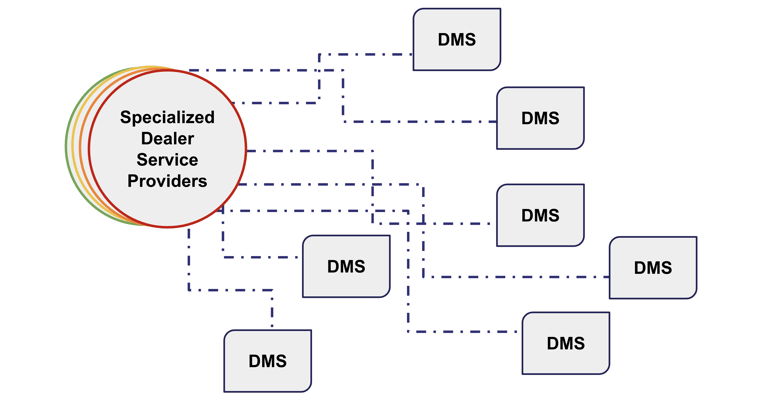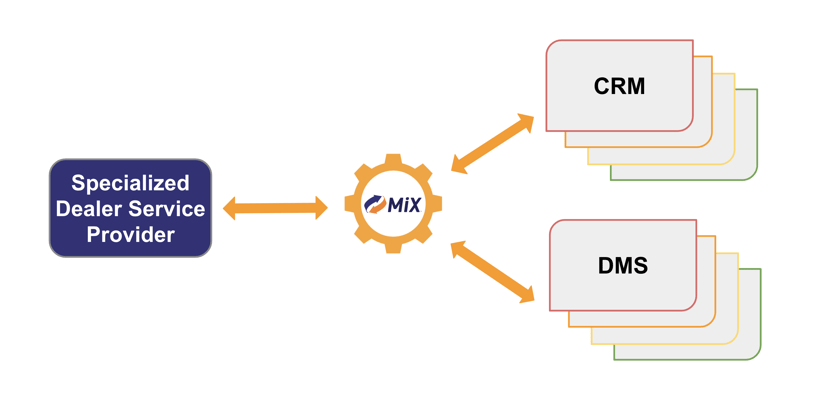A lack of available automotive APIs have long been a barrier to entry for innovation in the auto retail market, making it difficult for valuable new systems to gain a foothold in the market and preventing new interconnected processes to occur.
A common misconception is that companies just need to stand up robust APIs and make them freely available. But it’s really not that simple. It takes real effort to manage an API program and make it work effectively across a broad range of systems for a variety of use-cases.
Customer Data Platforms (CDP) are making waves in automotive retail right now because of their potential to add significant value to a Dealership by enabling the centralization of first party data. As an industry, we’ve learned that proper management of first party data is key to building better customer brand experiences, increasing customer lifetime value, and accelerating revenue growth.
However, these achievements can be difficult to attain without a centralized system for storing data that communicates bi-directionally with all the other systems used to run a dealers business. CDPs are at risk of becoming the latest example of an important innovation that struggles to quickly and effectively deliver their full promise because of data integration challenges and limitations.
Integration Challenges
As dealers look to these new data platforms to help keep customer information consistent and centralized, the need for integration with other core operational systems becomes table stakes.
CRM and DMS systems in particular, have critical information about Dealers’ customers, that the Dealers increasingly want centralized so they don’t miss critical marketing and sales opportunities.

DMS Challenges

DMS' tend to provide most of the core APIs needed to support these scenarios, including the ability to bi-directionally exchange:
- Customer Information
- Fixed Operation Events
- Vehicle Sales Activity
What complicates matters is that they all approach APIs differently. Data formats, authentication, technical and business rule differences, and not to mention, differences between commercial and support models. Quite frankly, it's a mess to navigate!
Navigating the complexity of automotive APIs for a single DMS is a challenge.
Building and managing these one-off proprietary integrations for each and every one is a massive, expensive undertaking.
For those companies that choose to establish direct integrations with the DMS, a continuum of API maintenance is needed to keep pace with any DMS changes.

CRM Challenges
CRMs on the other hand have a different set of challenges. In many, if not most cases, CRMs lack robust APIs or only support the most basic of use-cases and access for 3rd party software for data such as opportunity/deal information simply doesn’t exist.
As an automotive integrator, we’ve had discussions with a number of CRMs about the need for real-time API integration and on more than one occasion have been told “we simply don’t see the need yet.” Crazy, right?
We know for a fact there are digital retail companies who would jump at the chance to integrate with the CRM to push deal information via a secure API rather than having to rely on the outdated XML/ADF method which now opens everyone up to issues with the FTC.
We also know that ANY marketing company that drives online leads to the dealership CRM further enhances their value prop to the dealer if they can confidently attribute the lead, but continue to struggle simply because that data isn’t made available via an integration.
When we consider all the use-cases for integration with CRM systems, it simply doesn't make sense that CRM API connectivity isn't yet ubiquitous.
.jpg)
While it's important to note that we have seen some movement on the API front within the world of CRMs, proprietary APIs that lack standardization aren’t effectively moving the needle in a way that helps the industry.
If the CRMs were to release an API integration offering it would likely drive immediate interest because of the surplus of marketing and digital retail companies in the market who thrive on CRM data.
The CRM companies would end up going down the very same road we described on the DMS front. The market would become populated with a series of one off, proprietary CRM API connections all which need to be maintained and supported.
It would also mean the CRMs are each maintaining certification for all these systems with some sort of development / implementation / production support process, taking them further away from their core business.
This is cumbersome and time-consuming to establish for each system and perhaps one of the reasons some have been reluctant to get into the API business.
Creating a network of CRM API publishers through a standardized solution, similar to what Motive offers its DMS customers, would provide efficiencies at scale so that everyone wins.
The Solution
Systems need integration with DMS but there’s no standardization so it's challenging. Systems also need integration with CRM, but the available APIs are either non-existent or too basic for today’s needs.
So what’s the answer?
At Motive Retail we’ve approached the DMS space with a mindset of re-use and standardization.
We support DMS systems by offloading the need for modern API tools and support, meeting them where they’re at and making it easier for all other 3rd parties to integrate with them without the burden of investing in large teams and infrastructure.
Our DMS partners are always able to say yes to any new partner who needs to integrate with them and in turn keep their dealers happy.
For software platforms who need to integrate with the DMS we offer a one-to-many approach to implementation, support and ongoing management using a common set of JSON/RESTful STAR-based APIs.
Many of the industry’s top CRM providers work with us today and reap the benefits of a one-to-many integration with our DMS partners, now it’s time for the CRM to take advantage of the benefits associated with supporting the 3rd parties who need to integrate with them. The value proposition is clear for all sides.


If you want to know more about Motive’s approach and ideas for CRM integration, contact us. Perhaps together, as an industry we can shake things up and all win.


